Kalanchoe Care As A Houseplant & In The Garden
Oh, how I love succulents! And a succulent with lots of long-lasting flowers is just the cat’s meow. Enter the popular Kalanchoe blossfeldianas that are most commonly sold as indoor plants. In Santa Barbara, where I used to live (USDA zone 10), mine enjoyed the great outdoors year-round. This is about Kalanchoe Care indoors and outdoors, or Kals as we call them.
These long, lasting blooming plants with colorful flowers will brighten up both your garden and home. If you want the flowering period to be more long-lasting, buy your plant with at least half the flower buds partially or not yet opened. They’ll gradually open after you get them home.
I buy mine at the farmers market, and although we used them a lot in the interiorscaping trade in offices and homes, I had never grown them in the garden before. I’ve discovered that Kalanchoes bloom almost all year round here with very little care. My kind of plant!
Botanical Name: Kalanchoe blossfeldiana
Common Names: Kalanchoe, Flowering Kalanchoe, Florist Kalanchoe, Flaming Katy
NOTE: This post was published on 07/16/2014. I’m updating it on 06/22/2023. It’s one of the very first posts that I ever wrote. My how blogging has changed!
I’ve since written newer posts on Kalanchoe Care as houseplants. Rather than extensively update this post, I will list these more current posts Kalanchoe Care, Calandiva Care, and Growing Kalanchoe FAQs with more information and tips.
Kalanchoe Care In The Garden
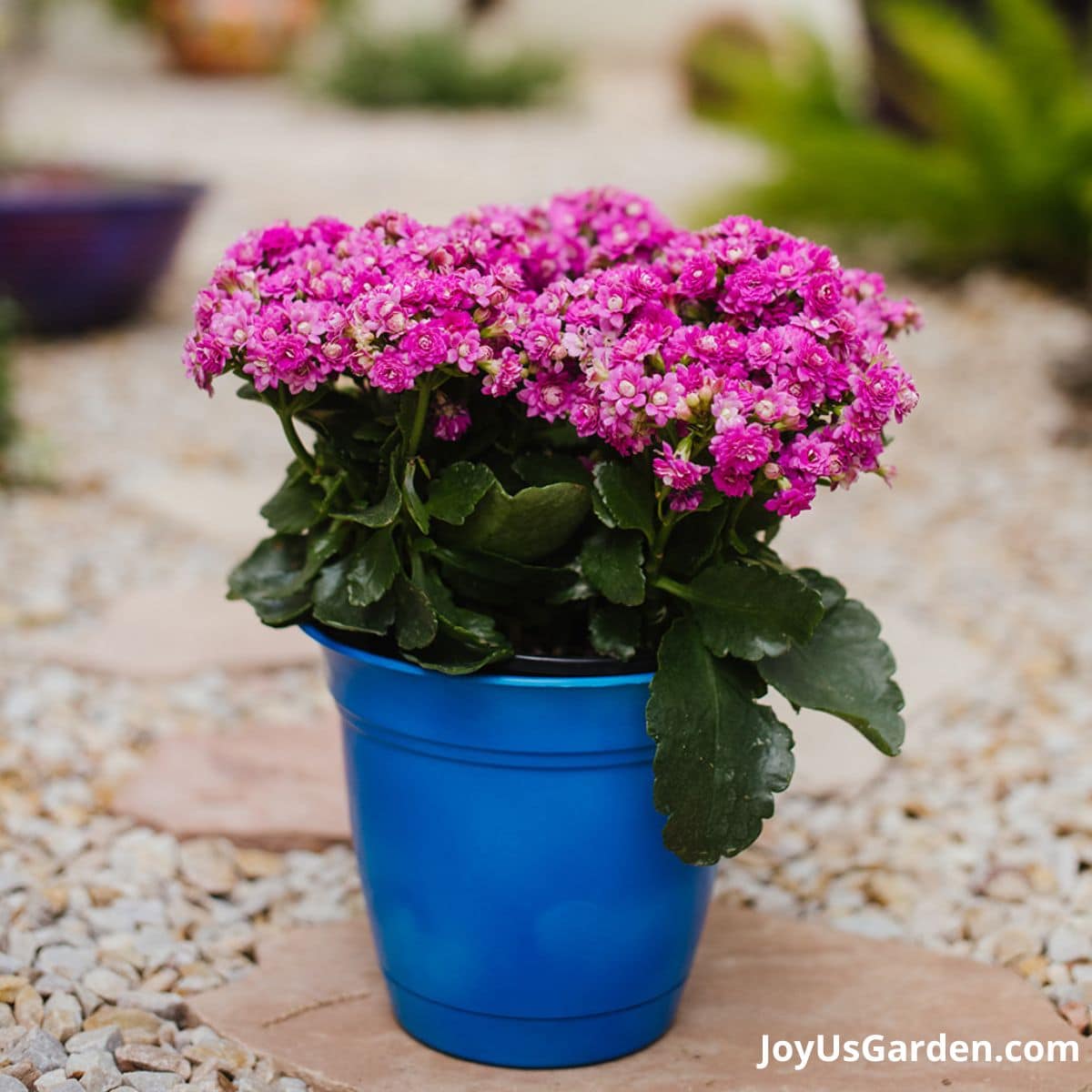
Light Requirements
Bright shade. Mine get bright light and one or two hours of direct sun in the summer, no more. Too much direct sunlight will cause burn.
Water Requirements
Once a week, thoroughly. They’re succulents, so they like to dry out between waterings.
Soil
Mine are planted in pots in half organic potting soil and half Succulent and Cactus Mix. Kalanchoes are succulents susceptible to root rot; they must be planted in well-draining soil.
Fertilizer
I don’t use any. I plant with worm castings, then top dress with worm castings and compost every spring. Once or twice during the warm months, I’ll water in some seaweed extract.
Pests
None so far, but then they can be susceptible to mealybugs and aphids.
Pruning Tip
I trim off the spent flowers, taking the stem down to where it meets the foliage. I don’t have to do it too often because the flowers are long-lasting, and the plant looks better this way.
Kalanchoe Care As Houseplants
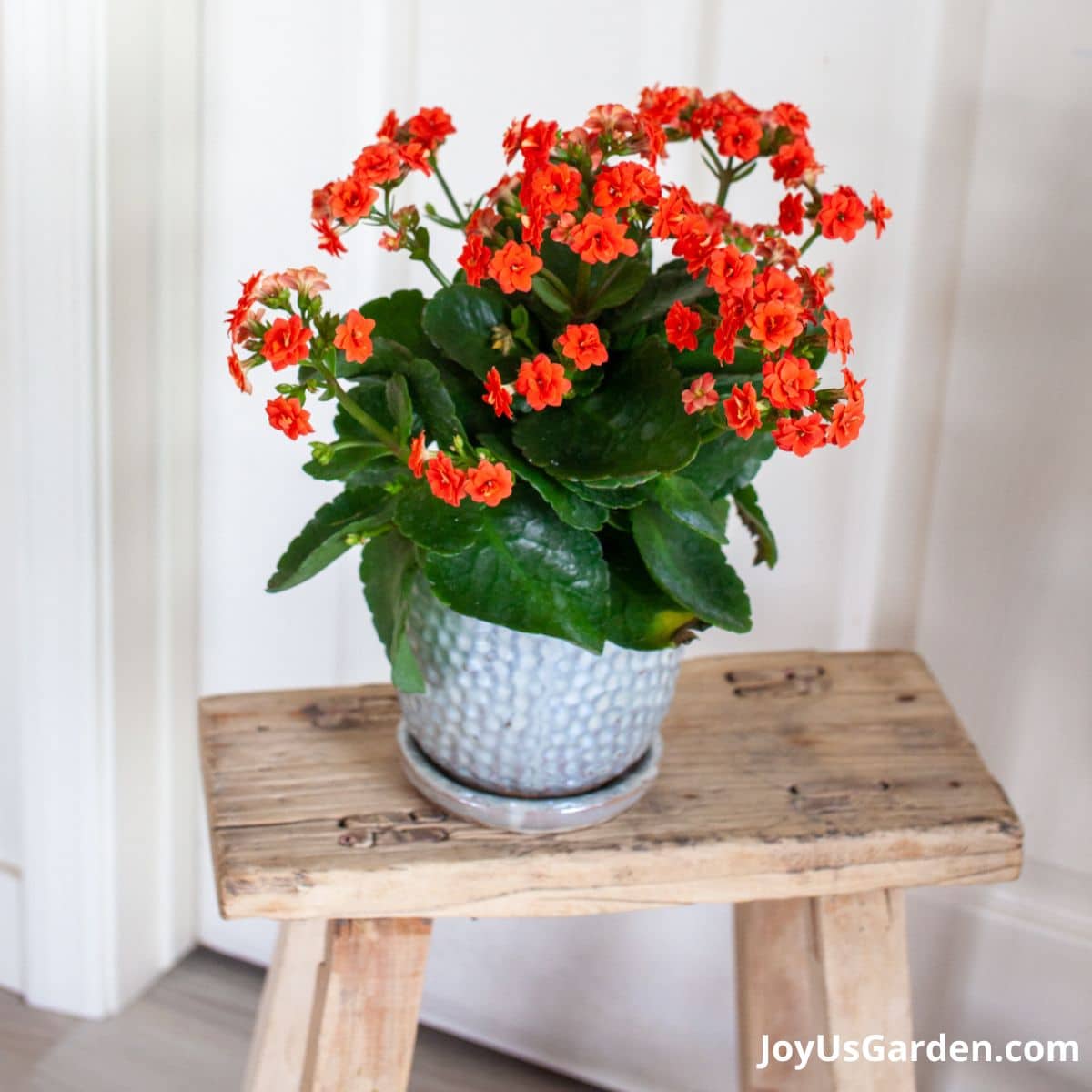
Now, onward to caring for them as houseplants. At the end of this post, I touch briefly on how to get them to bloom again indoors. Hint: it’s not easy.
Light Requirements
Give yours lots of bright indirect light. As bright as possible, something close to but not in a south and/or west-facing window. Keep it away from the hot windows – touching that glass will burn it. Ouch!
Water Requirements
Every two weeks in the warmer months. Wait until the soil drys out before watering again. And don’t let it sit in water. Remember, they’re succulent plants that store water in their fleshy leaves and stems, so keeping them too wet can cause mildew.
Too much moisture will also lead to root rot. They like to be kept on the dry side.
Tip: Yes, that paper or foil wrapping may be prettier than the grow pot but remove it when you water your plant. Remember, the Kalanchoe is a succulent, and too much water building up in the bottom will drown it out.
Soil
Use a potting soil mix formulated for houseplants with good drainage. A mixture of half potting soil and half Succulent and Cactus Mix would be fine. That’s what I used to plant up my new pink Kalanchoes.
Tip: Make sure the pot has drainage holes so the excess water can freely flow out.
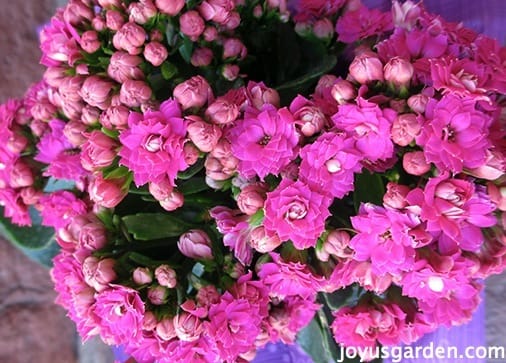
Temperature
I say if your home is comfortable to you, then your houseplants should be just fine too. They would enjoy a vacation outdoors in the warmer months (refer to outdoor care above).
Fertilizer
Use an organic balanced liquid fertilizer like Sea Grow if you feel yours needs it. Easy does it—only two yearly applications – once in mid-spring and the other in mid-summer.
Here are some of our houseplant guides you may find helpful: 13 Stores Where You Can Buy Houseplants Online, 6 Low Maintenance Plants For Travelers, 11 Pet Friendly Houseplants, Tips For Buying Houseplants, Best Low Light Indoor Plants, Easy Care Office Plants, 7 Easy Care Floor Plants, 7 Easy Tabletop & Hanging Plants
Pests
Keep an eye out for Mealybugs. They leave behind a residue that looks like specks of cotton. Aphids and Scale can also be an issue.
Pruning Tip
The foliage grows very densely. I snip away some of those leaves growing over the blooms. Those purdy little flowers will show more!
Getting Kalanchoes To Rebloom
Now, on to how to get them to bloom again. If yours hasn’t ever repeat bloomed, don’t feel bad. I’ll start by saying “good luck” because you must work for it.
Kalanchoes, like Poinsettias, are photoperiodic. This means they react to periods of light exposure and need at least 12-14 hours of darkness to bloom again.
Chances are, if you have them in your home, you have them in a room that isn’t getting that amount of complete darkness. Starting in winter, you must put them in a closet or a pitch-black room for 12-14 hours. And yes, they need that every night for two months. Be sure to cut back on the watering too.
Kalanchoe Blossfeldiana Flower Colors
Kalanchoes are known for their beautiful flowers, which come in vibrant red, orange, and pink shades. You can also find them in white and more subtle shades of pink. There are bi-color flowers as well.
The flowers are long-lasting, and the rich green leaves are attractive and shiny. A great blooming plant for the garden or your home!
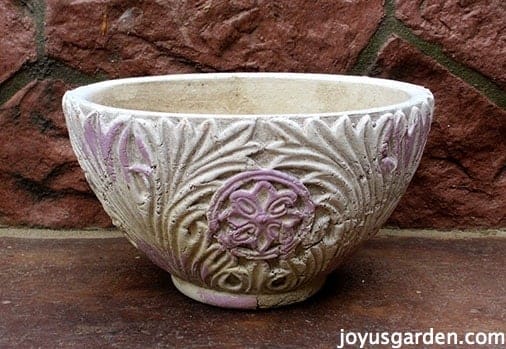
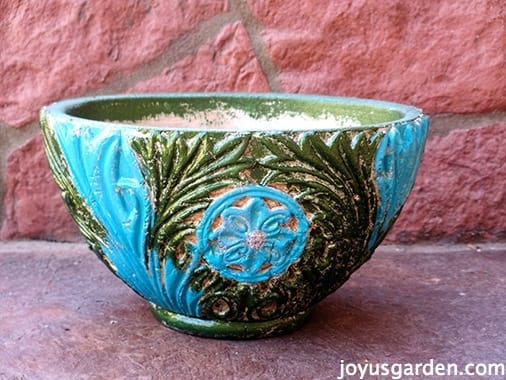
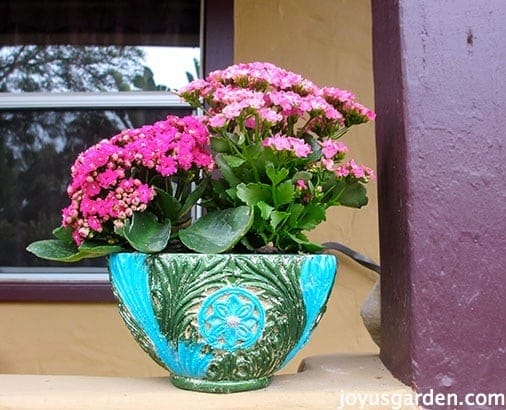
Kalanchoe Care Video Guide
(Warning: This is an old video!)
In conclusion, taking care of a Kalanchoe plant is not as daunting as it may seem. With the right light levels, water, and well-drained soil, your kalanchoe can thrive and bring life to any room in your house or the right spot in your garden.
We have written more current posts on Kalanchoes: Kalanchoe Care, Calandiva Care, and Kalanchoe FAQs with lots more information and tips.
Note: This post was originally published on 07/16/2014 and updated on 06/22/2023.
Happy Gardening,

This post may contain affiliate links, you can read our policies here.
- About the Author
- Latest Posts
Nell, the founder of Joy Us garden, was born into a gardening family and grew up in Connecticut’s countryside. After living in Boston, New York, San Francisco, & Santa Barbara, she now calls the Arizona desert home. She studied horticulture & garden design, working in the field all her life. Nell is a gardener, designer, blogger, Youtube creator, & author. She’s been gardening for a very long time & wants to share what she’s learned with you.

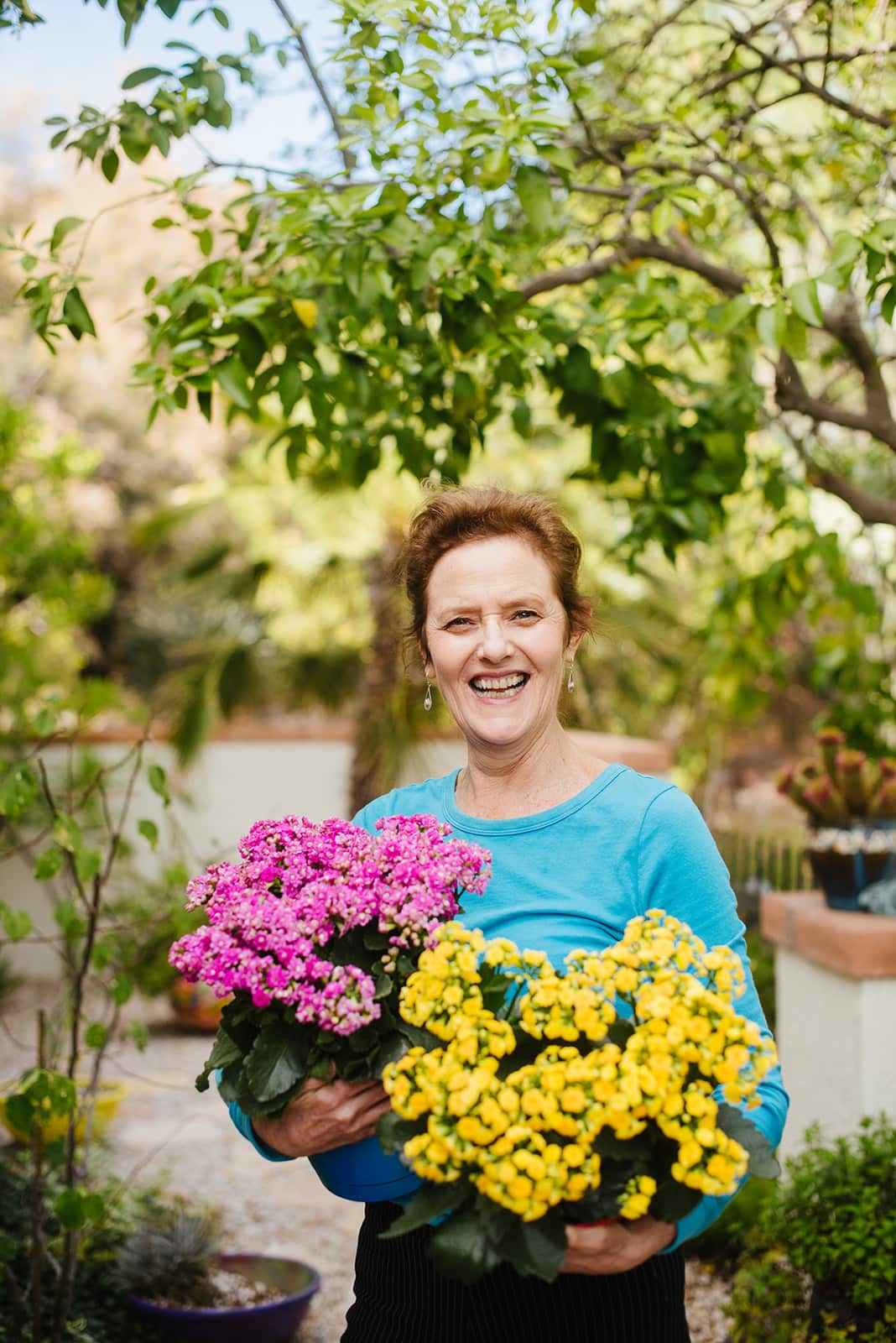
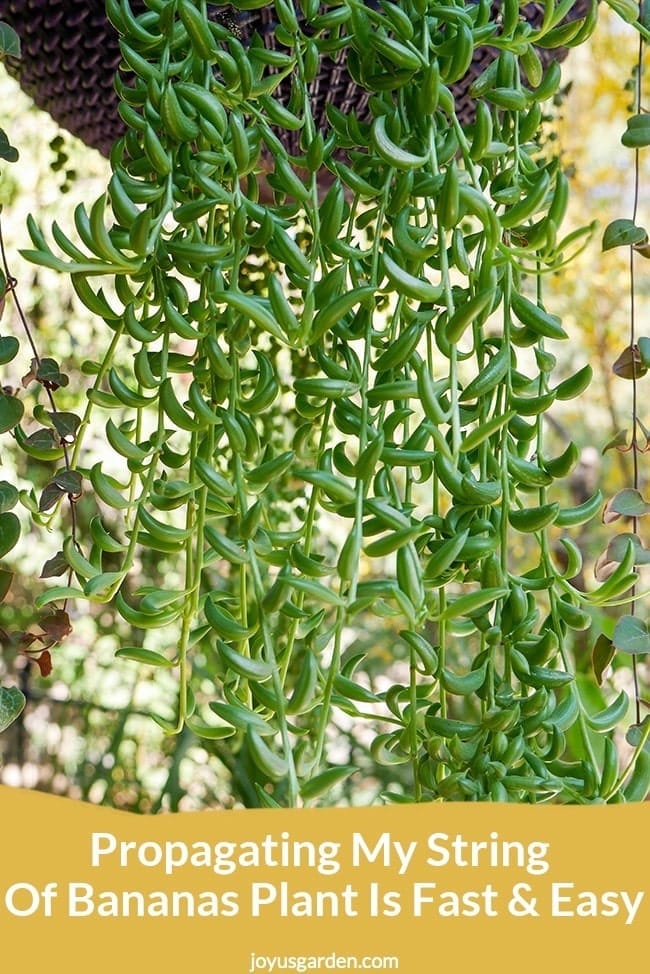
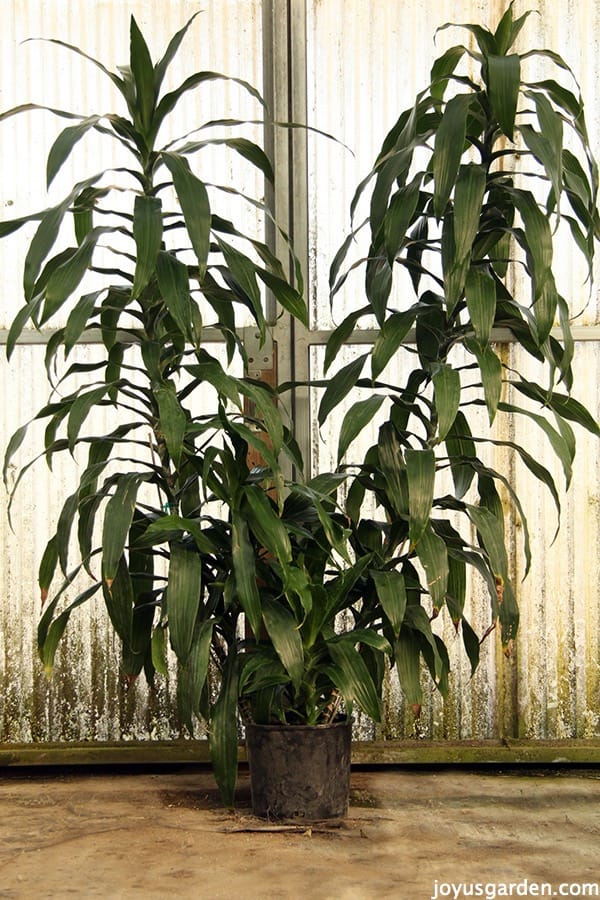
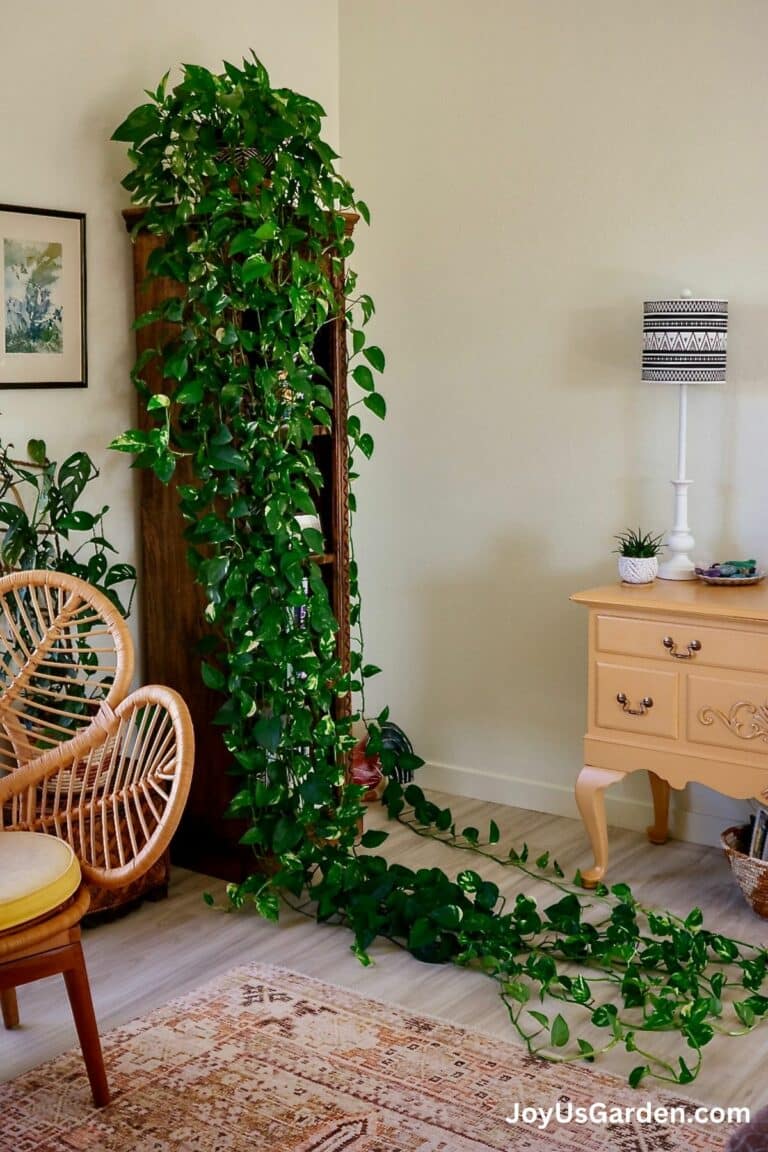
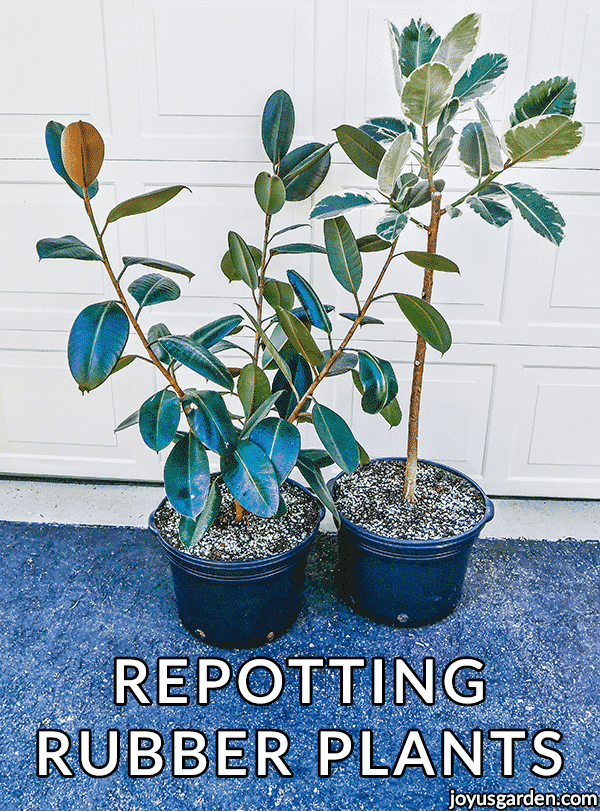
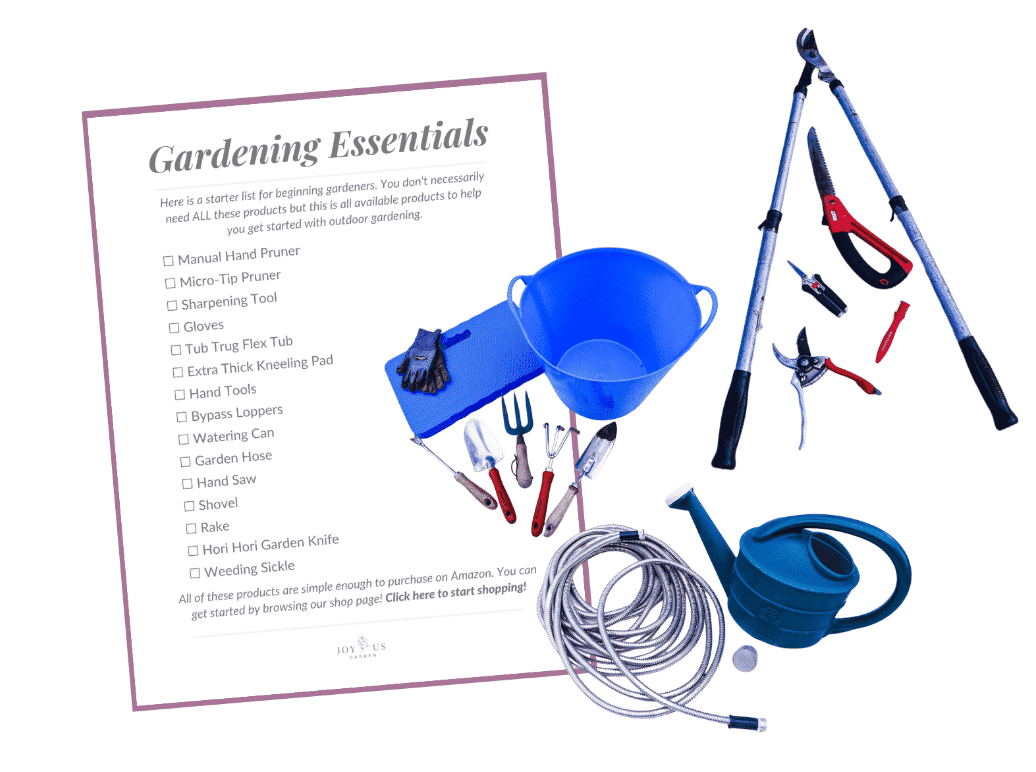
I got a kalanchoe in a bouquet when my Mom passed away August 2013. So it’s sentimental to me. A few months later I pruned and picked off some drying leaves, and just let it regrow. But it just seems to grow up taller with small leaves, though it still looks nice in the window. Should I maybe nip the tips off the stems growing upward?
I also have another issue! you know anything about the giant cannas plant? I rec’d some seeds I ordered and the instructions said it could take up to 6 weeks before they germinate. I searched on youtube about germinating theses seeds and found some techniques that I thought I would experiment with, on a couple of the seeds. they germinated after 3 days and are growing. Here it is early January and its going to be 3 months before I can get them outside. do you think they’ll be able to survive that long in a 4×4″ pot by the window?
Hi Ken – Oh those sentimental plants – I so understand. It may not be getting enough light if the leaves are small & the stems are reaching skyward. You can certainly do tip pruning which will encourage it to stay lower & you might even consider doing it every month or 2. My Kanlanchoes grow outdoors & I prune them after every bloom cycle. By the way, because it’s Winter, don’t fertilize it. Even houseplants need a bit of rest! Nell
Hi Ken – Cannas are a very common landscape plant around here. If you only have 2 seeds in that 4″ pot, they should be fine. They do tend to grow fast, including the roots, so just make sure the soil doesn’t completely dry out. Cannas do not like to go dry when young. They are tough plants & transplant easily (I’ve seen them at the grower’s with pots split open) so if they have look like they have to be repotted in March, no problem. Nell
Nell,
I have a Kalanchoe-Jackie which is into its second bloom. My question is how to control the plant from spreading outward from the center of the pot? Should I us Stick Propagation to refill the center of the pot?
Thank You
Hi Damian – These Kalanchoes spread from the center of the pot to get more light. I propagate them 2 ways with success: leaf cuttings & 4″ stem cuttings taken from that smaller new growth which shoots off the main stems. Hope that helps, Nell
Hi Nell, so glad to have found your site. I live in Southern Florida, on the Gulf Coast near Naples – way down. It is summer most of the year and mine is red, did not know what I was buying, it was just so beautiful I had to have it. It has not stopped blooming, been about 5 months so far. I am just about to put it in the ground and am now rethinking that. I have some big pots and it seems happy in a pot. So, I think I will transplant it to a larger pot, which, I took, am going to paint! You have inspired me. I am 65 and need some inspiration in my life right now and you are helping me fill that void. I thank you.
Dotty
PS I am an avid reader and will read up on propagation, etc .
Dorothy – I’m so glad you found my site too! I live in a temperate climate right on the coast on California but the air is much drier than in Florida. Kalanchoes are succulents & prefer drier conditions so you are wise to keep it in a pot because it could possibly rot out in the ground where you are. Mine are actually in pots too because they make great container plants. Keep on reading & watching because I have a lot more videos & posts coming your way. You made my day Dorothy – I love sharing what I know & answering questions so I’m touched that you find my site an inspiration. All the best, Nell
I have a question about over watering a kal. Im not a gardener and have a black thumb. I dont think i have killed it yet what should i watch out for and can I bring it back?
Hi Heather – Once a succulent is overwatered indoors, it’s hard to bring it back. If it’s not too far gone, you can simply let the soil dry out. If the soil isn’t drying fast enough, then replant your kal into fresh, dry succulent planting mix. Look out for leaves & stems”mushing out” & turning yellow then brown (but still remaining spongy feeling, not dry), Hope that helps, Nell